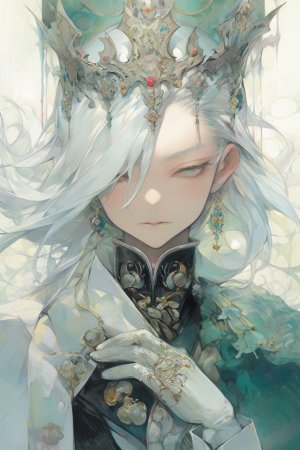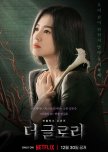unflinching portrayal of school bullying
The Glory is a long awaited drama helmed by Goblin and The King: Eternal Monarch’s visionary writer - Kim Eun Sook, much driven by a lone victim’s desire for revenge.
Firstly it must be acknowledged that this is the first work I’ve seen from Song Hye Kyo, having tried to take on the infamous “Descendants of the Sun” and failing after the first 2 episodes. Her portrayal as the protagonist Dong Eun is utterly compelling as well as heartbreaking. More than the graphic scenes of bullying and violence, the real tragedy lies in SHK’s expressions that emphasised the deep trauma that remained unforgiving through the years into adulthood. And in a recent panel talk, it detailed her efforts to also showcase this through a frail and weak body for a particularly vulnerable scene.
There have been plentiful dramas that have touched on the subject of school bullying (Penthouse, Who are You: School 2015, Boys over Flowers etc), but The Glory is quite possibly the first I’ve witnessed to undertake a character study that is the driving force of the plot itself rather than it being a sideline. It does not shy away from depicting the horrors of school violence that, appallingly, seems to be the norm in South Korea, but also how corruption influences the actions taken towards a victim who desperately needed the support of an adult.
Dong Eun is a strong testament to victims who were either silenced or made to believe that somehow, it’s their fault. And while the praise is deserved for SHK’s performance for the cathartic elements to follow once the revenge kicks in, I have to commend Jung Ji So, who plays the younger Dong Eun. The way her mannerisms varied as the ep progressed and her dwindling innocence and hope are visceral, and one can’t help but root for her “glory” against her perpetrators.
Regarding supporting characters, the performances from those who portrayed the vicious band of bullies left no room for viewers to sow forgiveness, and it’s a likelihood of very real individuals who aren't capable of seeking atonement in the slightest. The contrast between Dong Eun and the perpetrators appears to be undoubtedly a black and white situation, eliminating all potentials of “feeling sorry for the villain” trope that has cropped up since Joker.
Out of all characters, the intrigue ultimately falls on the charming and mysterious Ha Do Young, played by Jung Sung Il. He is the tranquil greyness in all of this, representing the viewer's experience in the unknowns and knowns of the truth of Dong Eun’s past and the role his wife has played in it. The portrayal is deliberately vague and it is difficult to read his thoughts behind the calm dialogue and the nuanced game of Go. He embodies some undertones of righteousness and consideration but not in an explicit way, making his potential responses in S2 highly anticipated.
I’m not an expert when it comes to music but I thought it’s worth mentioning two soundtracks in particular, both of which did a splendid job in accenting various scenes. The first is “You Remember” by Paul Kim, and “Until the End” by Kelley McRae accompanies the opening episode, perfectly setting the bleak and heavy tone of the drama. The singer did an excellent job in expressing the tragedy of a victim, perhaps also hinting the barest slope of hope amidst the melancholy of the piano.
I’m very much gravitated towards works that involve taboo and difficult themes, but still end up unnerved by the unrelenting violence and assault pictured in the episodes. It was even more surprising to see this from Kim Eun Sook. From her works, it appears that this is the first time she has boldly tackled these extremely dark and vulnerable subjects that weren't explored before in dramas like The Heirs, The King EM, and Goblin. The latter two are more emotionally in depth than sensitive and dark, overall making the Glory quite refreshing to see.
Firstly it must be acknowledged that this is the first work I’ve seen from Song Hye Kyo, having tried to take on the infamous “Descendants of the Sun” and failing after the first 2 episodes. Her portrayal as the protagonist Dong Eun is utterly compelling as well as heartbreaking. More than the graphic scenes of bullying and violence, the real tragedy lies in SHK’s expressions that emphasised the deep trauma that remained unforgiving through the years into adulthood. And in a recent panel talk, it detailed her efforts to also showcase this through a frail and weak body for a particularly vulnerable scene.
There have been plentiful dramas that have touched on the subject of school bullying (Penthouse, Who are You: School 2015, Boys over Flowers etc), but The Glory is quite possibly the first I’ve witnessed to undertake a character study that is the driving force of the plot itself rather than it being a sideline. It does not shy away from depicting the horrors of school violence that, appallingly, seems to be the norm in South Korea, but also how corruption influences the actions taken towards a victim who desperately needed the support of an adult.
Dong Eun is a strong testament to victims who were either silenced or made to believe that somehow, it’s their fault. And while the praise is deserved for SHK’s performance for the cathartic elements to follow once the revenge kicks in, I have to commend Jung Ji So, who plays the younger Dong Eun. The way her mannerisms varied as the ep progressed and her dwindling innocence and hope are visceral, and one can’t help but root for her “glory” against her perpetrators.
Regarding supporting characters, the performances from those who portrayed the vicious band of bullies left no room for viewers to sow forgiveness, and it’s a likelihood of very real individuals who aren't capable of seeking atonement in the slightest. The contrast between Dong Eun and the perpetrators appears to be undoubtedly a black and white situation, eliminating all potentials of “feeling sorry for the villain” trope that has cropped up since Joker.
Out of all characters, the intrigue ultimately falls on the charming and mysterious Ha Do Young, played by Jung Sung Il. He is the tranquil greyness in all of this, representing the viewer's experience in the unknowns and knowns of the truth of Dong Eun’s past and the role his wife has played in it. The portrayal is deliberately vague and it is difficult to read his thoughts behind the calm dialogue and the nuanced game of Go. He embodies some undertones of righteousness and consideration but not in an explicit way, making his potential responses in S2 highly anticipated.
I’m not an expert when it comes to music but I thought it’s worth mentioning two soundtracks in particular, both of which did a splendid job in accenting various scenes. The first is “You Remember” by Paul Kim, and “Until the End” by Kelley McRae accompanies the opening episode, perfectly setting the bleak and heavy tone of the drama. The singer did an excellent job in expressing the tragedy of a victim, perhaps also hinting the barest slope of hope amidst the melancholy of the piano.
I’m very much gravitated towards works that involve taboo and difficult themes, but still end up unnerved by the unrelenting violence and assault pictured in the episodes. It was even more surprising to see this from Kim Eun Sook. From her works, it appears that this is the first time she has boldly tackled these extremely dark and vulnerable subjects that weren't explored before in dramas like The Heirs, The King EM, and Goblin. The latter two are more emotionally in depth than sensitive and dark, overall making the Glory quite refreshing to see.
Questa recensione ti è stata utile?








